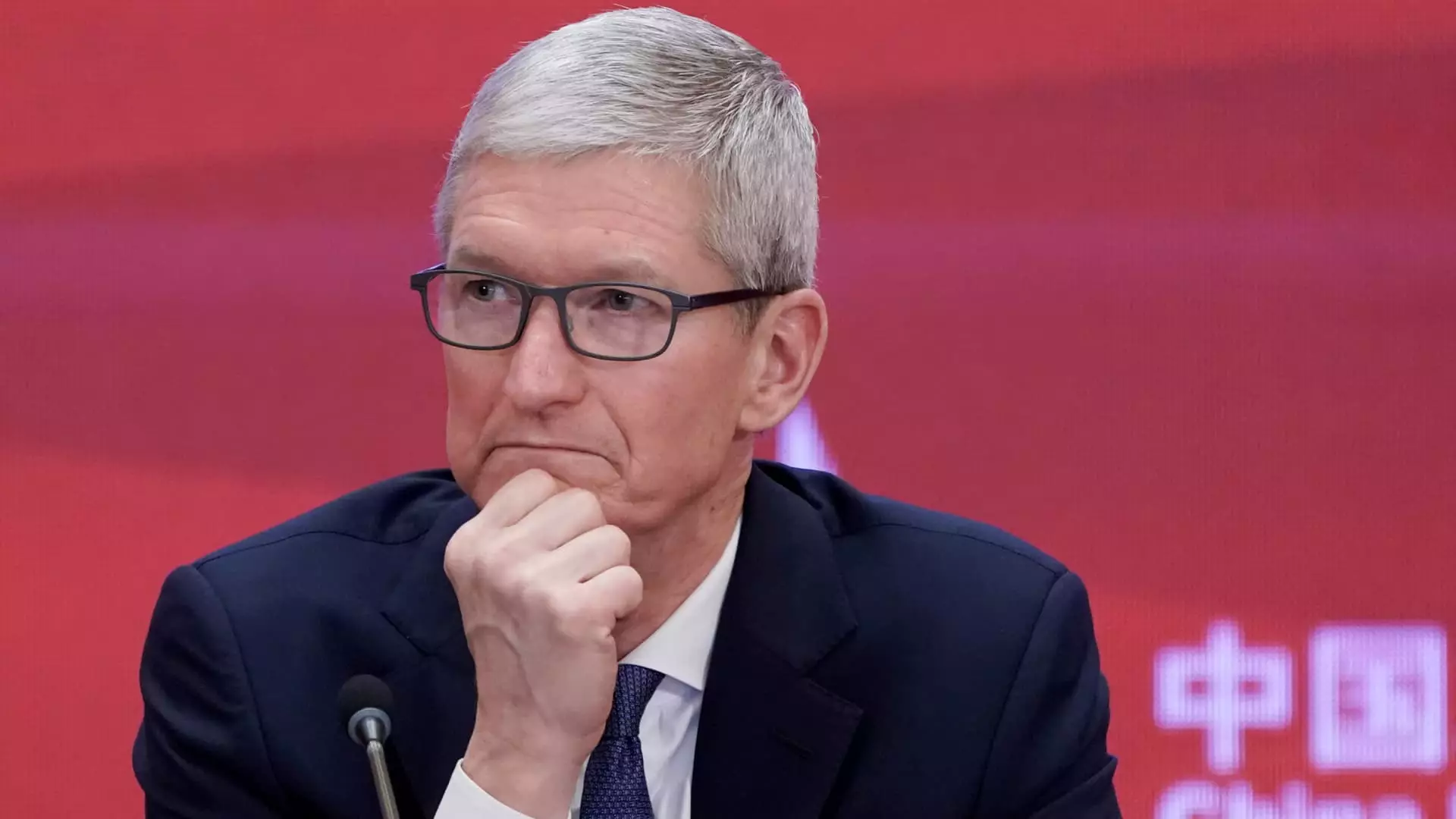Apple experienced a 3% drop in shares on Thursday, following a 4% decline on the previous day, after reports surfaced suggesting that Chinese government workers may be banned from using iPhones. These reported restrictions, although not publicly confirmed by the Chinese government, have raised concerns that Apple’s products could be caught in the crossfire of international tensions between the United States and China. With China being Apple’s third-largest market, accounting for 18% of its total revenue of $394 billion, and also being the location where most Apple products are assembled, this potential ban could have significant implications for the tech giant.
China has allegedly ordered officials at central government agencies not to bring iPhones into the office or use them for work. It remains unclear how far-reaching these bans are. However, if they were to extend to all government employees, iPhone sales in China could be reduced by up to 5%, according to Bernstein analyst Toni Sacconaghi. Nevertheless, Sacconaghi suggests that an even greater threat to Apple would be if these bans signal to everyday citizens that they should instead use electronics made by Chinese companies. This broader promotion of domestic technology usage could negatively impact iPhone sales among consumers, including related family members and the general populace.
The possibility of a government iPhone ban, coupled with increased competition from Huawei, led Dan Niles, a portfolio manager at Satori Fund, to sell his stake in Apple and start shorting the company. Last week, several Chinese retailers began accepting pre-orders for Huawei’s new phone, the Mate 60 Pro, which quickly gained popularity on social media platforms in the country. Priced at 6,900 RMB (approximately $954), the phone uses a chip manufactured by Huawei’s subsidiary, HiSilicon. While early tests suggest that the phone has access to 5G speeds, the official specifications do not mention this capability. Huawei’s rise in popularity poses a significant challenge to Apple’s position in the Chinese market.
Huawei’s new phone features a chip manufactured in China using the 7-nanometer production process. Smaller production processes generally result in faster and more efficient chips. However, questions arise regarding the effectiveness of the separate restrictions on chip-manufacturing technology, which aim to prevent Chinese companies from manufacturing cutting-edge processors. In 2019, Huawei was placed on the U.S. entity list due to concerns that its technology could provide the Chinese government with backdoor access to communications. This move required U.S. companies like Google and Qualcomm to obtain permission from the U.S. government before supplying Huawei. Consequently, these sanctions significantly impacted Huawei’s phone business, leading to a $12 billion shortfall in 2020 and the spin-off of some of its phone brands.
In the most recent quarter, which ended in June, Apple’s sales in Greater China saw an 8% increase on an annual basis, reaching $15.76 billion. This region represented Apple’s fastest-growing market. During the company’s earnings call, CEO Tim Cook highlighted the shift of users from Android phones to iPhones as a key driver of their results. Convincing more users to switch to iPhones remains a priority for Apple, as they emphasize the unique experience and ecosystem they offer.
The potential ban on iPhones for Chinese government employees has triggered a decline in Apple’s share prices. The implications for Apple are significant, considering China’s standing as its third-largest market and the location of its product assembly. While the bans could lead to a decrease in iPhone unit sales, the greater concern lies in the promotion of Chinese-made electronics to everyday citizens. Moreover, Huawei’s rising popularity and the technological advancements showcased in its new phone further intensify competition for Apple. The effectiveness of restrictions on chip-manufacturing technology also comes under scrutiny, as Huawei continues to manufacture chips using a smaller production process, potentially challenging the dominance of Apple’s upcoming iPhone models. Apple’s success in Greater China remains pivotal for the company’s future growth, as it continues to strive for increased market share among users switching from Android phones.


Leave a Reply